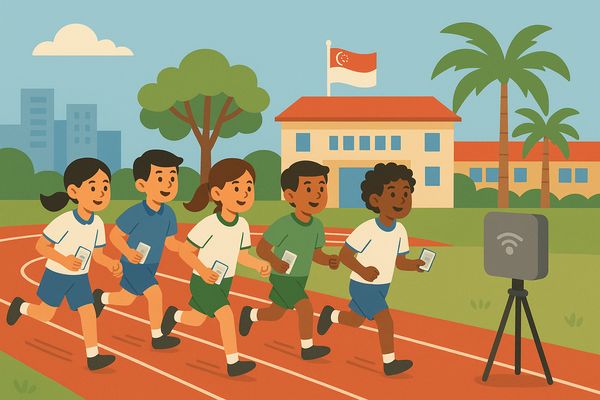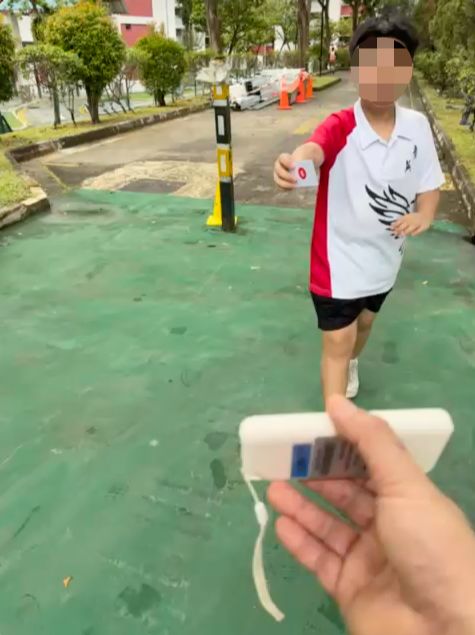Pilot Run: Smarter Lap Timing for NAPFA 2.4km at Yuying Secondary

This year, Yuying Secondary School piloted a new way of running the NAPFA 2.4km test — with RFID cards and contactless lap timing.
Instead of relying on stopwatches and manual lap counts, both students and teachers experienced a smoother, more accurate process from start to finish.
From the Students’ Perspective: Just Run
The 2.4km was run in 3 laps, with two RFID readers placed at the start/finish line and the turnaround point.
Students carried RFID cards and simply flashed them within 1.5 metres of the readers while running past.
A quick beep confirmed the lap was recorded — no stopping, no tapping.
The system also gave voice prompts: one to announce the last lap, and another at the finish line.
These cues kept runners focused and motivated.
At the end, results were instantly available, broken down by lap.
While the system supports publishing results to Mangostin’s online student portfolio — allowing students to view their timings immediately from their smartphones — this feature was not activated during the pilot.
The focus was on testing the reliability and accuracy of the contactless timing system.
From the Teachers’ Perspective: Focus on Students, Not Stopwatches

For PE teachers, the pilot was a major shift. With RFID readers capturing every lap automatically, there was no need to manually tally or time. Teachers could:
- Track live lap counts and timings for each student on their mobile phones
- Get real-time updates as students flashed their cards at the checkpoints
- Depend on the system’s voice prompts to keep the run structured without extra announcements
- Export results instantly in a format ready for MOE’s Cockpit system
Instead of being tied to paperwork, teachers were free to observe performance, motivate students, and ensure safety.
A Pilot to Build On
The NAPFA 2.4km remains a test of endurance, discipline, and grit.
But Yuying Secondary’s pilot showed how technology can make the process fairer, faster, and more student-centred.
With RFID lap timing, the school demonstrated a future where PE assessments are less about admin — and more about empowering students.
